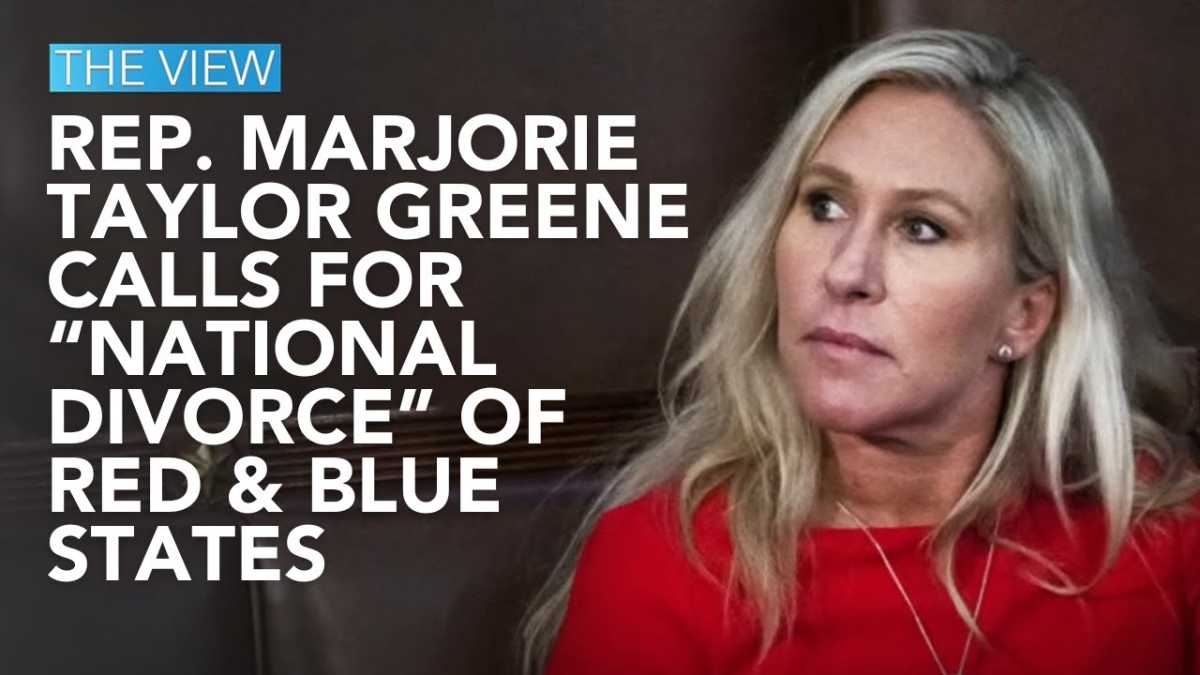Politics
Rep. Marjorie Taylor Greene Calls for ‘National Divorce’ Between Red and Blue States

Amid an escalating standoff between Republicans and Democrats, Rep. Marjorie Taylor Greene has made a striking call for a ‘national divorce’ between red and blue states. The controversial Georgia congresswoman, known for her incendiary statements, took to social media to voice her support for a complete separation
Greene, a staunch conservative and avid supporter of former President Donald Trump, proposed the idea of red and blue states going their separate ways in order to preserve what she sees as the core values of each group.
‘It’s clear that we are at a point of irreconcilable differences, where compromise seems impossible,’ Greene said in a statement. ‘Rather than continuously clashing, perhaps it’s time for a peaceful and amicable separation.’
The concept of a ‘national divorce’ is not a new one, with similar sentiments expressed by politicians and commentators throughout American history. However, Greene’s vocal endorsement of this idea has ignited passionate debates among both supporters and critics.
Proponents argue that a separation between red and blue states would allow for the implementation of policies and governance that align more closely with the values and preferences of each region. They believe that this would lead to greater independence and success for both sides.
Opponents, on the other hand, argue that such a divorce would only further divide the country and perpetuate polarization. They fear that it could worsen existing social, economic, and political disparities, and undermine the unity and strength of the United States as a whole.
As discussions around the idea grow, it remains to be seen whether Rep. Marjorie Taylor Greene’s call for a ‘national divorce’ will gain traction or remain a controversial vision. The dynamics of this proposal and its implications for American society are likely to be subjects of intense scrutiny in the coming weeks and months.












